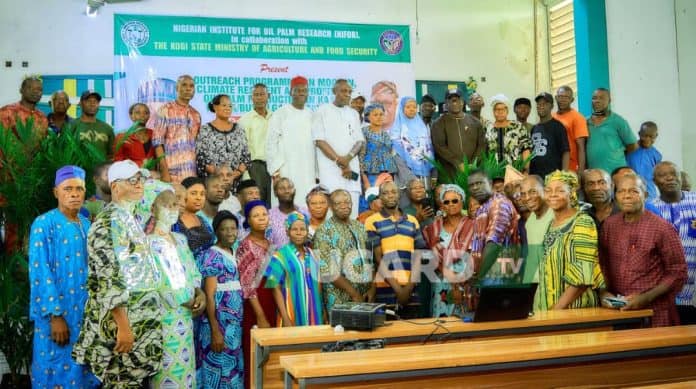The Kogi State Government has introduced a green initiative targeting the oil palm sector, with farmers receiving training on international export standards and adaptive techniques for climate change. The workshop, held at the College of Agriculture, Ahmadu Bello University, Kabba, introduced farmers to climate-smart techniques aimed at adapting to irregular weather patterns and ensuring sustainable yields.
Representing the Commissioner for Agriculture and Food Security, Timothy Ojomah, the Director of Agricultural Services, Kunle Agbana, emphasized the urgency of reorienting farmers as rainfall patterns become increasingly unpredictable.
He highlighted that such training is essential not just for productivity but also for maintaining the quality and international competitiveness of Kogi’s oil palm sector.
READ ALSO, ODODO MEDIA AIDE HOSTS RISING STAR AJEMO
The initiative also included the distribution of over ₦2.5 million worth of improved oil palm seedlings to farmers in Kogi West, with promises of extending the gesture to Kogi East in the coming weeks.
According to Olusegun Solomon, Director of Research at the Nigerian Institute for Oil Palm Research (NIFOR), the improved seedlings are part of a broader strategy to unlock the full economic potential of oil palm farming in Nigeria.
Solomon further noted the growing global demand for oil palm by-products such as palm kernel shells and emphasized that every component of the tree has commercial value.
This, he said, makes oil palm cultivation a vital economic opportunity that could drive job creation and support the state’s agro-industrial goals.
Chairman of the Kogi West Oil Palm Multi-Purpose Cooperative Society, Moses Olorunnipa, praised the training as a transformative opportunity for farmers and youth. He called on young people to invest in processing equipment and form cooperatives that can scale production and enter global markets.
VIDEO: KOGI GOVERNMENT HOUSE LAUNCHES MONTHLY NEWSLETTER
The program aligns with Governor Usman Ahmed Ododo’s broader agricultural vision, which includes the tractorization of over 8,000 hectares of farmland and the provision of free inputs to over 88,000 farmers.
As the state pushes toward expanding cultivated areas and building export-ready value chains, stakeholders say this initiative marks the beginning of a new era in Kogi’s agricultural development.




